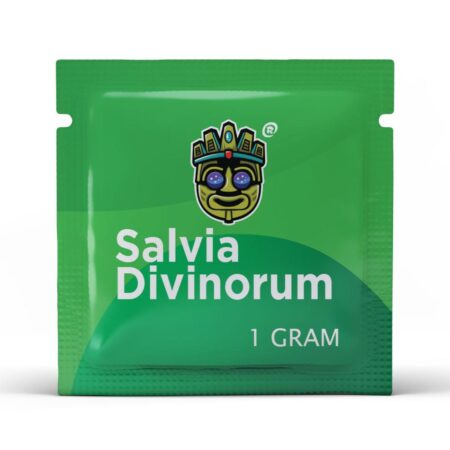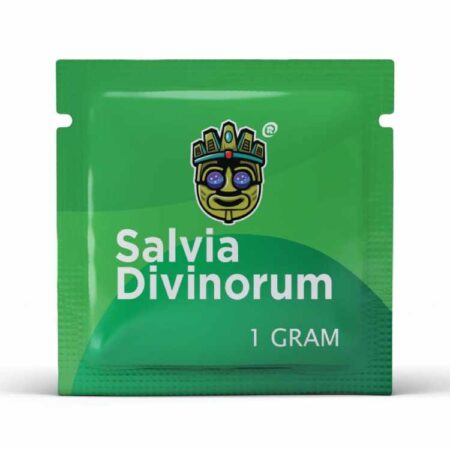Salvia Divinorum is a psychoactive plant native to the Oaxaca region of Mexico. It has been used for centuries by Mazatec people in traditional spiritual and healing practices. The plant contains the active compound salvinorin A, which produces intense and often unpredictable effects when ingested.
Salvia Divinorum gained popularity in the Western world in the 1990s, largely due to its unique and powerful psychoactive effects. Today, it is commonly used for recreational purposes and as a tool for introspection and spiritual exploration.
Salvia Divinorum was first introduced to the Western world in the 1930s by ethnobotanist Jean Basset Johnson, who brought samples of the plant back to the United States for study. However, it wasn’t until the 1990s that the plant gained widespread popularity, largely due to the internet and the ease of obtaining Salvia Divinorum plants and extracts online.

Today, Salvia Divinorum remains a controversial substance due to its potent and unpredictable effects and the lack of research on its safety and efficacy. While some individuals use Salvia Divinorum for introspection, spiritual exploration, or recreation, it is essential to approach its use with caution and to be aware of the potential risks and side effects.
Can Salvia Divinorum be addictive?
There is currently limited research on the addictive potential of Salvia Divinorum, but some evidence suggests that it may not be addictive in the traditional sense. Unlike other substances like opioids or stimulants, Salvia Divinorum does not produce euphoria or activate the brain’s reward center in the same way, which are often factors in addiction.
However, Salvia Divinorum can produce intense and potentially disturbing effects, which may lead some individuals to seek out the substance repeatedly to experience those effects again. Additionally, individuals who struggle with impulse control or have a history of addiction may be more vulnerable to developing problematic use patterns with Salvia Divinorum.
Overall, while Salvia Divinorum does not appear to be highly addictive in the traditional sense, it is essential to approach its use with caution and to monitor for any signs of problematic use or dependence. It’s also crucial to be aware of potential risks and side effects and to use Salvia Divinorum responsibly and under the guidance of a trusted healthcare professional.
What is salvinorin A?
Salvinorin A is the primary psychoactive compound found in Salvia Divinorum. It is a kappa-opioid receptor agonist, which means that it binds to and activates the kappa-opioid receptors in the brain.
Unlike other opioids such as morphine or heroin, which activate the mu-opioid receptors in the brain, salvinorin A produces unique and potent psychoactive effects that are not mediated by the brain’s reward pathway. Instead, salvinorin A activates the kappa-opioid receptors, which are primarily involved in regulating pain perception, mood, and stress responses.
When salvinorin A binds to the kappa-opioid receptors, it produces a range of effects on the brain and body, including altered perception, changes in mood, and altered states of consciousness. These effects are thought to be primarily mediated by changes in the activity of the prefrontal cortex, which is involved in regulating attention, perception, and decision-making.
While the exact mechanisms of action of salvinorin A are not fully understood, researchers believe that its unique effects may be due to its high potency and selectivity for the kappa-opioid receptors. This selectivity may allow for the production of specific psychoactive effects that are not seen with other opioids or psychoactive substances.
It’s important to note that Salvia Divinorum and salvinorin A are potent and potentially dangerous substances, and their use should only be undertaken with caution and under the guidance of a trusted healthcare professional.
Our Salvia Divinorum Extracts For Sale:
-
 10x Salvia Extract$19.99 – $77.99
10x Salvia Extract$19.99 – $77.99 -
 20x Salvia Extract$24.99 – $96.99
20x Salvia Extract$24.99 – $96.99 -
 40x Salvia Extract$29.99 – $116.99
40x Salvia Extract$29.99 – $116.99 -
 60x Salvia Extract$38.99 – $155.99
60x Salvia Extract$38.99 – $155.99



